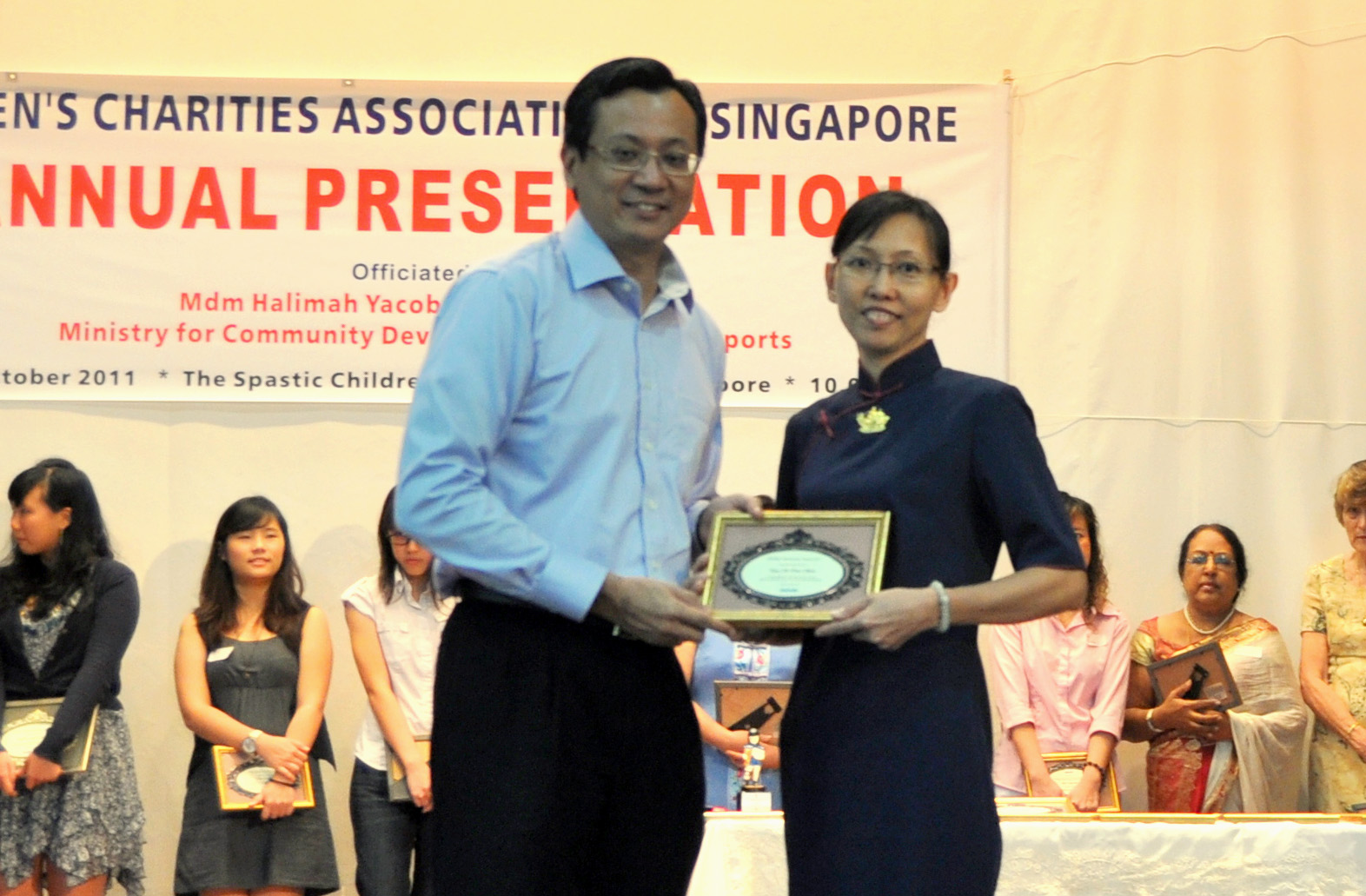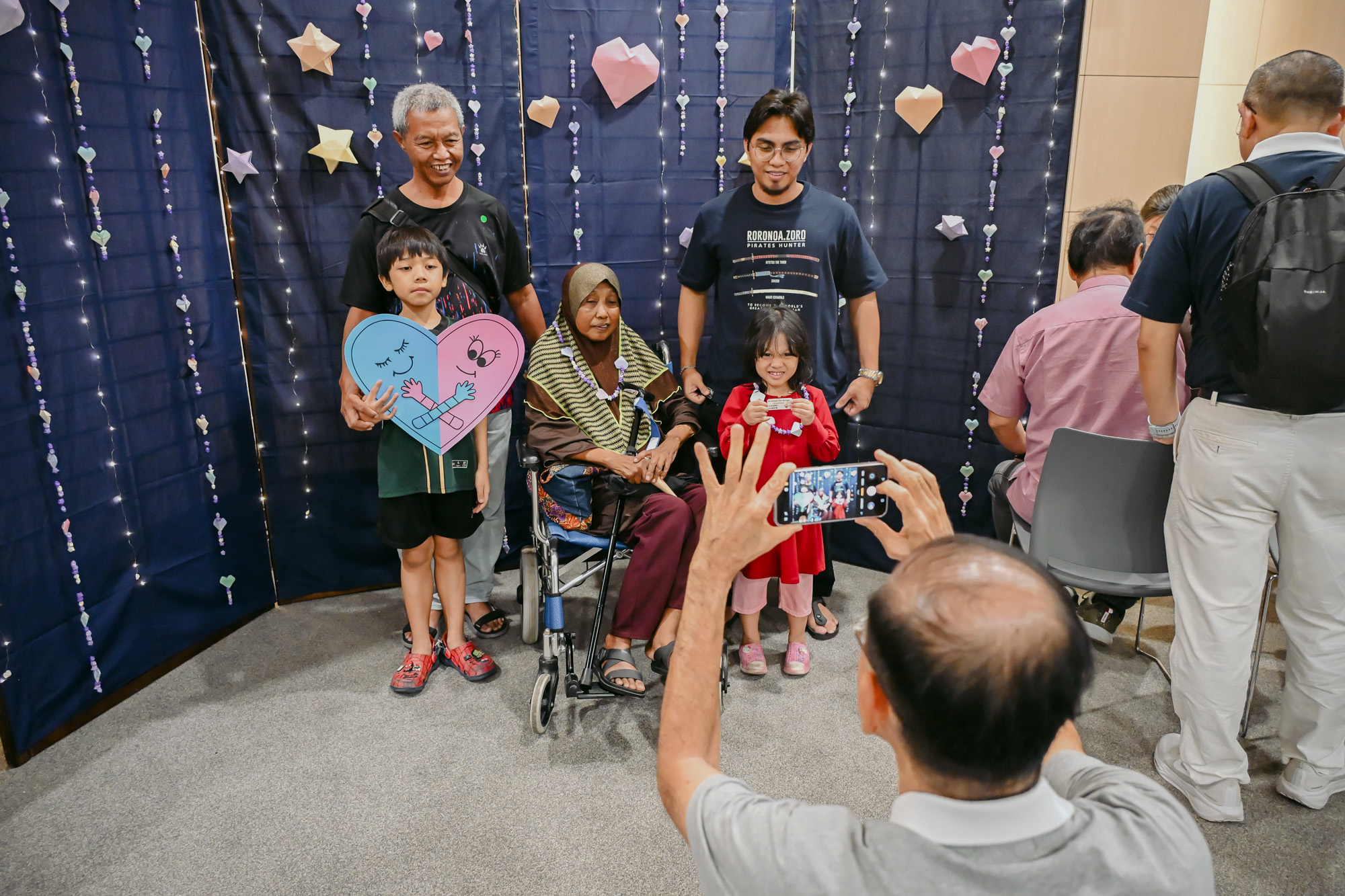 Tzu Chi Singapore held a “Stay Home Quilt” Exhibition in November last year, showcasing fabric artworks made by several communities including migrant workers and domestic helpers. There was also a photo exhibition documenting the volunteers’ interaction with migrant workers. The Exhibition aimed to promote interaction among various communities.
Tzu Chi Singapore held a “Stay Home Quilt” Exhibition in November last year, showcasing fabric artworks made by several communities including migrant workers and domestic helpers. There was also a photo exhibition documenting the volunteers’ interaction with migrant workers. The Exhibition aimed to promote interaction among various communities.
In the Asia-Pacific Migration Report 2020, the United Nations Economic and Social Commission for Asia and the Pacific (ESCAP) has appealed to all countries to include migrant workers as part of their COVID-19 vaccination programme in view of their heightened risk of exposure to the virus.
Rank high in global competitiveness, Singapore offers COVID-19 vaccination for Singaporeans as well as long-term residents. Foreigners working in Singapore, often known as “migrant workers”, are also included in the nation’s vaccination programme. Since the outbreak of COVID-19 in Singapore last year, the Government had launched the “Trace Together” applications and digital check-in system “SafeEntry” for contact tracing purposes. Such excellent health surveillance and screening effort even won praises from the Harvard University Infectious Disease Experts. Unfortunately, the lion city was hit by a massive outbreak in March last year, with the majority of the cases originating from migrant worker dormitories. To prevent the spread of the virus, the Government responded quickly by implementing a nationwide lockdown named “Circuit Breaker”, in which residents were made to work and study from home and only takeaways were allowed in all food and beverage (F&B) establishments. During the Circuit Breaker period, as many as 300,000 migrant workers were screened and quarantined.
There was also another outbreak this year (2021) in May, as such, the Government responded by enhancing the existing COVID-19 restrictions. On 17th May morning, less than two weeks after the Government enhanced the screening and isolation regulations among migrant worker dormitories, Tzu Chi Humanistic Youth Centre received a call from the Ministry of Manpower (MOM) requesting Tzu Chi to continue with the “Stay Home Quilt” project from last year and bring forth the project spirit in a bid to improve the mental health of migrant workers.
Doing the “Right” Thing
During the pandemic, the Government has provided medical treatment, isolation facilities and food to the affected migrant workers and even subsidised their salaries. However, as Singaporeans progressively resume their social and economic activities, the movement of migrant workers are still greatly restricted. Food is sent to their doorstep, and they are not even allowed to visit their neighbouring room. They are only allowed to venture out once every few months where shuttle buses are arranged to take them out to designated venues each time for them to rest, post mails, remit money and purchase groceries. For the rest of the time, they continue with their daily routine of commuting between their dormitories and workplace. Even though such an arrangement may not spell freedom entirely, migrant workers are more than grateful for the opportunities to leave their room to enjoy some fresh air.
Tzu Chi has extended its care towards migrant workers for more than a year through numerous activities such as furnishing community care facilities that house migrant workers with mild COVID-19 symptoms, supplying masks and other daily necessities to them, organising online talks and uplifting them morally. Among the efforts, “Stay Home Quilt” is a corporation-sponsored art project jointly organised by Tzu Chi Singapore and a community art organization. “Stay Home Quilt” signified how migrant workers regard their dormitories as their new “home” during the quarantine period and gave them an avenue to express their longing for their families while earning a living abroad. People who were interested to take part in the programme only needed to leave a comment on the project website to receive a sewing kit that consists of needles, thread, buttons and cloth from Tzu Chi Humanistic Youth Centre. Upon receiving the sewing kit, participants could start expressing themselves freely through sewing.
Apart from “patching their homesickness via needlework”, Tzu Chi Humanistic Youth Centre had also invited 550 migrant workers and members of the public last year to donate their textile artworks. These were all then stitched together to form a new textile art piece symbolising “home” that was later exhibited in Tzu Chi Humanistic Youth Centre.
Tzu Chi Humanistic Youth Centre manager, Lim Choon Choon, shared that a large amount of recycled materials was utilised in this art project. The buttons and fabric were sourced from second-hand clothes that were collected from the neighbourhood. In the hands of skilful volunteers and migrant workers, unwanted old clothes were not only given a new lease of life but also transformed into a “storytelling” medium and a tool for reaching out to vulnerable groups. Under the invitation of the Government this year, Tzu Chi Humanistic Youth Centre plans to collaborate with different NGOs to show care for migrant workers through a series of online seminars, art workshops, sewing activities, poetry recitation and more.
Tzu Chi Singapore will also take the initiative to contact the Migrant Workers’ Centre to arrange for talks and stress-relieving activities for migrant workers. “Apart from my roommates, you are the first human being I have met during the past four months!”, one migrant worker proclaimed upon meeting Lim Choon Choon during one of the visits. She could still vividly recall how agitated that migrant worker was, which made her teared up slightly. Not only was she stirred by the amount of helplessness that honest remark carried, she also felt that indeed “she has done the right thing!”
For over a year, Singapore has accumulated more than 62,000 confirmed COVID-19 cases. Out of the figure, migrant workers constitute approximately eighty to ninety percent of the cases. This made the volunteers slightly nervous during the visits to dormitories, with some volunteers wearing four layers of masks under their face shields. Some tried not to visit the toilet for up to five hours just to prevent any risk of infection.
“Even though personal protective measures are fully in place, it is still hard to know if we would be infected!” However, what touched Lim Choon Choon the most was the courage displayed by the volunteers who bravely entered the dormitories to engage the migrant workers despite their fear. They did so fearlessly to bring care and concern to the migrant workers. Feedback from volunteers after the session that they “had never interacted with migrant workers so closely before” had also moved Lim Choon Choon.
 Nearby residents, migrant workers and volunteers came together to weave pieces of carpet and construct the Joglo House during the “Stay Home Quilt” art exhibition open house.
Nearby residents, migrant workers and volunteers came together to weave pieces of carpet and construct the Joglo House during the “Stay Home Quilt” art exhibition open house.
Let Isolation no longer be Lonesome
Since the start of the Circuit Breaker period from April last year till June, Tzu Chi was forced to stop their monthly visit to the beneficiaries’ homes. Instead, Tzu Chi volunteers provided care for more than a hundred elderly households and vulnerable groups who live alone through regular telecommunication. After knowing that many beneficiaries had reused their face mask because they were unable to purchase essential items, Tzu Chi Singapore started to pack care packages for them. Each care package consists of essential items such as dried food, face masks and hand sanitizers. For beneficiaries with special needs, items such as wheelchairs or baby products were also donated to them.
To reduce the financial burden of the beneficiaries while complying with the Government’s COVID restrictions during the Circuit Breaker period, all the essential items were delivered to the beneficiaries by volunteers working in the transportation industry whose livelihood were affected due to the pandemic. Deputy manager of Tzu Chi Charity Development Department, Goh Leay Ying, explained that only certain jobs deemed essential by the Government, such as delivery workers, were excluded from the work from home requirements during the Circuit Breaker period. By means of providing employment as a form of relief, not only can essential items be delivered to the hands of the underprivileged, aid recipients can also gain a sense of achievement through the process of giving.
Goh Leay Ying also shared that there was one middle-aged lady who was so worried that she might be infected by COVID-19 and transmit it to her bed-ridden husband if she leaves her house. Day by day, she dared not step out of her house. And when she finds it all too stressful to handle, she would stand by her window and shout to ventilate her emotions. When volunteers called her to show concern about her current situation, the lady said that she had not eaten bread for a long time. On that night, volunteers living in the same neighbourhood went to buy a loaf of bread and delivered it to her.
That volunteer recounted the moment when the lady thanked her joyously upon receiving the loaf of bread, and she still finds the reaction astonishing. “To most of us, bread is just an easily available food. However, in the eyes of that lady, it is almost like a gift from heaven…”, sighed Goh Leay Ying. Even though the pandemic has fragmented human connections and social distance, it has also highlighted the smallest act of kindness can warm people’s hearts.



